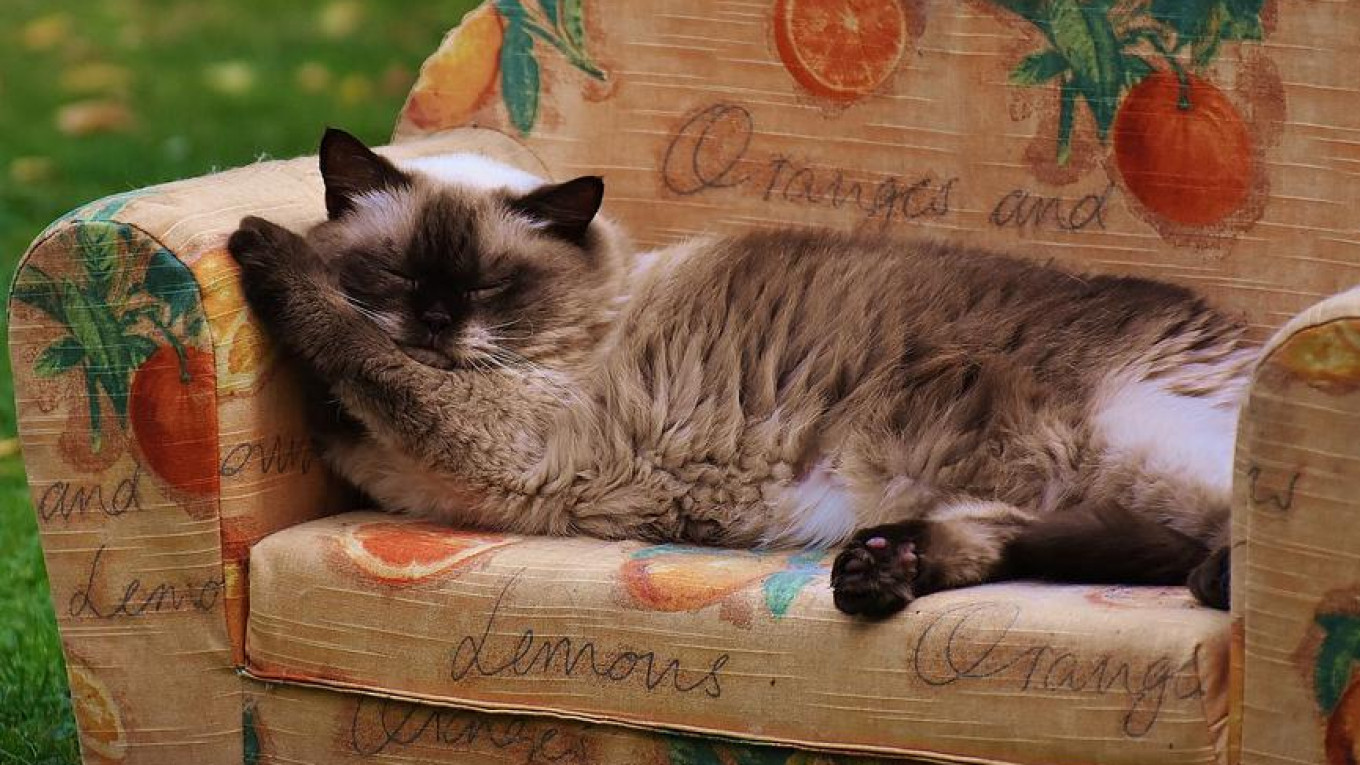Отдыхать:
to rest, retire, nap, vacation...
Отдыхать. Simple word, right? You use it all the time. But think for a minute: how many meanings does it have? Two? Three? So far I’ve counted eight. Take a load off — отдыхайте! — and see if you can come up with any I’ve missed.
Let’s start with an old and obscure meaning. The verb pair отдыхать/отдохнуть is related to дышать (to breathe) and once meant to catch one’s breath, to come to after fainting, and so on. This usage is about two centuries out of date: Мы подумали, что котёнок умер, но вдруг он опять отдохнул (We thought the kitten had died, but it suddenly took a breath.) Today it sounds like a mistake; we’d say вздохнул.
Отдыхать can also mean the opposite — not waking up but falling asleep, usually taking a nap. This seems to be a polite way of saying someone is conked out on the couch after lunch. So you might hear on the phone: Михаил Васильевич отдыхает. Что ему передать? (Mikhail Vasilievich is resting. Can I take a message?)
Отдыхать can mean “not working.” Sometimes “not working” really means “retired,” which some people need to be pushed into: Генерал, который не справился со своими обязанностями, должен отдыхать на пенсии (A general who couldn’t keep up with his responsibilities should retire.) In other cases, “not working” means outside usual work hours. For example, a night-duty nurse says: Когда все отдыхают, мы работаем (We go to work when everyone else is off the clock.)
Another way of “not working” is taking a vacation: Люди покупают путёвки и едут отдыхать (People are buying package tours and going on vacation.) The folks on those package tours — or at any resort or dacha — are отдыхающие (vacationers). You may want to avoid them: Мы нашли место в стороне от пляжей и отдыхающих (We found a spot that was far from the beaches and holiday makers.) Vacationing can be a bit repetitive, linguistically, that is: Однажды я отдыхала в доме отдыха (Once I went on holiday in a holiday hotel.)
In a slightly different context, отдых can be recreation or leisure, like at the country’s thousands of парки культуры и отдыха (parks of culture and recreation).
Отдыхать can also mean to rest, like what kids should do before the school year begins: Пусть отдыхает, скоро ведь учёба (They should rest up — school starts soon, after all.) And what adults should do every night: Три часа перед сном: отдыхайте, читайте, расслабляйтесь (Three hours before bed time: relax, read, and wind down.)
But sometimes it can mean almost the opposite of relaxation — having a ripping good time: Мы редко видимся, но если уж встречаемся, то отдыхаем на полную катушку (We don’t see them often, but when we do, we really cut loose.) As another parent points out: дети в лагере, родители отдыхают (When the kids are at camp, the parents will play.)
Отдыхать can be to take a break — or not, as the case may be: Палач не отдыхал, виселицы были обыденным явлением (The executioner didn’t take a break, and gallows were commonplace.)
But in slang, отдыхать means something else altogether — it refers to a loser or someone who compares unfavorably to someone else. When a guy sings in the shower like an opera star, his friends shout: Паваротти отдыхает! (Pavarotti has nothing on this guy!)
Among the younger set it can also be a command that means “we don’t need you”: Отдыхай! (Get lost!)
So the next time someone tells you: Отдыхай — think about it before you thank them.
Michele A.
Berdy is a Moscow-based
translator and interpreter, author of “The Russian Word’s Worth,”
a collection of her columns.
A Message from The Moscow Times:
Dear readers,
We are facing unprecedented challenges. Russia's Prosecutor General's Office has designated The Moscow Times as an "undesirable" organization, criminalizing our work and putting our staff at risk of prosecution. This follows our earlier unjust labeling as a "foreign agent."
These actions are direct attempts to silence independent journalism in Russia. The authorities claim our work "discredits the decisions of the Russian leadership." We see things differently: we strive to provide accurate, unbiased reporting on Russia.
We, the journalists of The Moscow Times, refuse to be silenced. But to continue our work, we need your help.
Your support, no matter how small, makes a world of difference. If you can, please support us monthly starting from just $2. It's quick to set up, and every contribution makes a significant impact.
By supporting The Moscow Times, you're defending open, independent journalism in the face of repression. Thank you for standing with us.
Remind me later.








